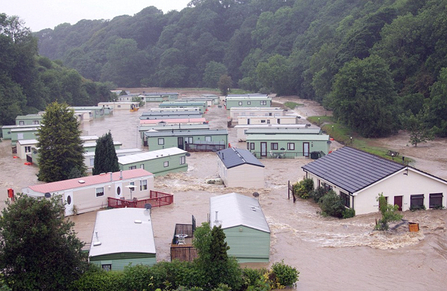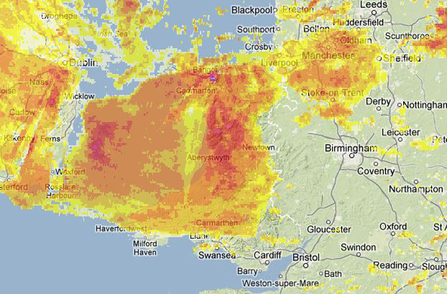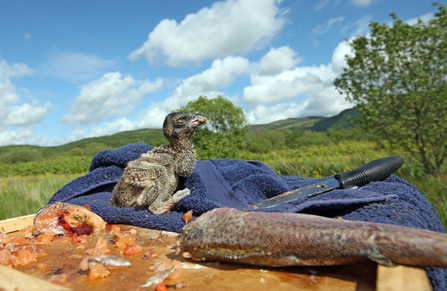June 9th, 2012 was one of those strange, surreal days that will stay in the mind for a long time. A 5am look through the window confirmed the worst possible news - the most devastating summer storm to hit west Wales in living memory was still with us and that meant that torrential wind and rain had been falling on the osprey nest for 24 hours non-stop. Turning the computer on then confirmed we had a power cut - the whole area was out.
Utter devastation just down the road from the Dyfi Osprey Project



